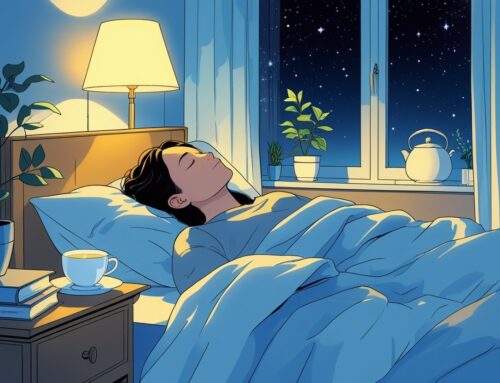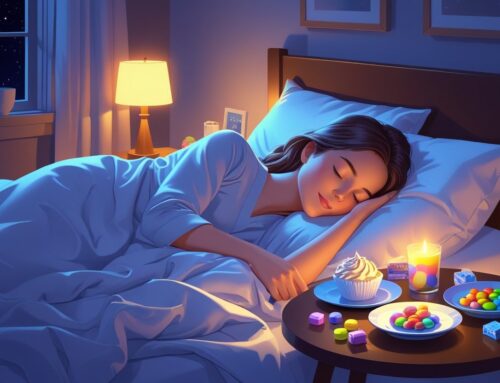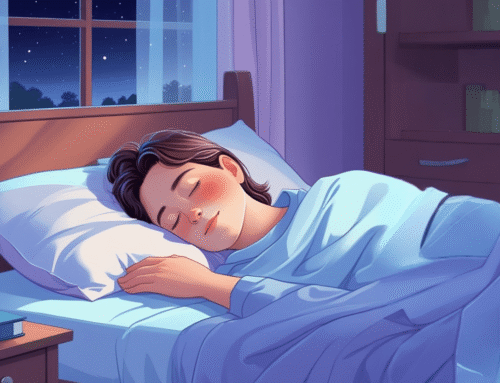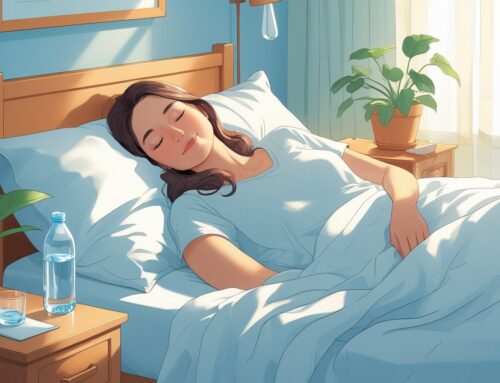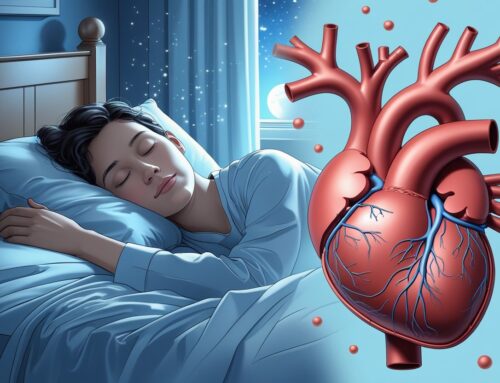Depression and sleep problems often go hand in hand. It’s not usually random. The two are connected, and each one can make the other worse. When sleep is poor, depression tends to feel heavier. And when someone is depressed, falling or staying asleep can be harder. Some people with depression struggle with insomnia, lying awake even when they feel exhausted. Others sleep much longer than usual but still wake up drained. Both patterns affect mood, energy, and the ability to get through daily routines.
Noticing how sleep and depression affect each other is an important step. When sleep improves, symptoms of depression often ease up too. That’s why addressing sleep problems can be a key part of managing depression and feeling better overall.
Key Takeaways
- Sleep problems and depression go hand in hand and influence one another.
- Both too little and too much sleep may signal depression.
- Improving sleep reduces depressive symptoms and supports better daily function.
- Investing in a mattress that balances support and temperature regulation promotes deeper rest and aids in managing depression and reducing anxiety.
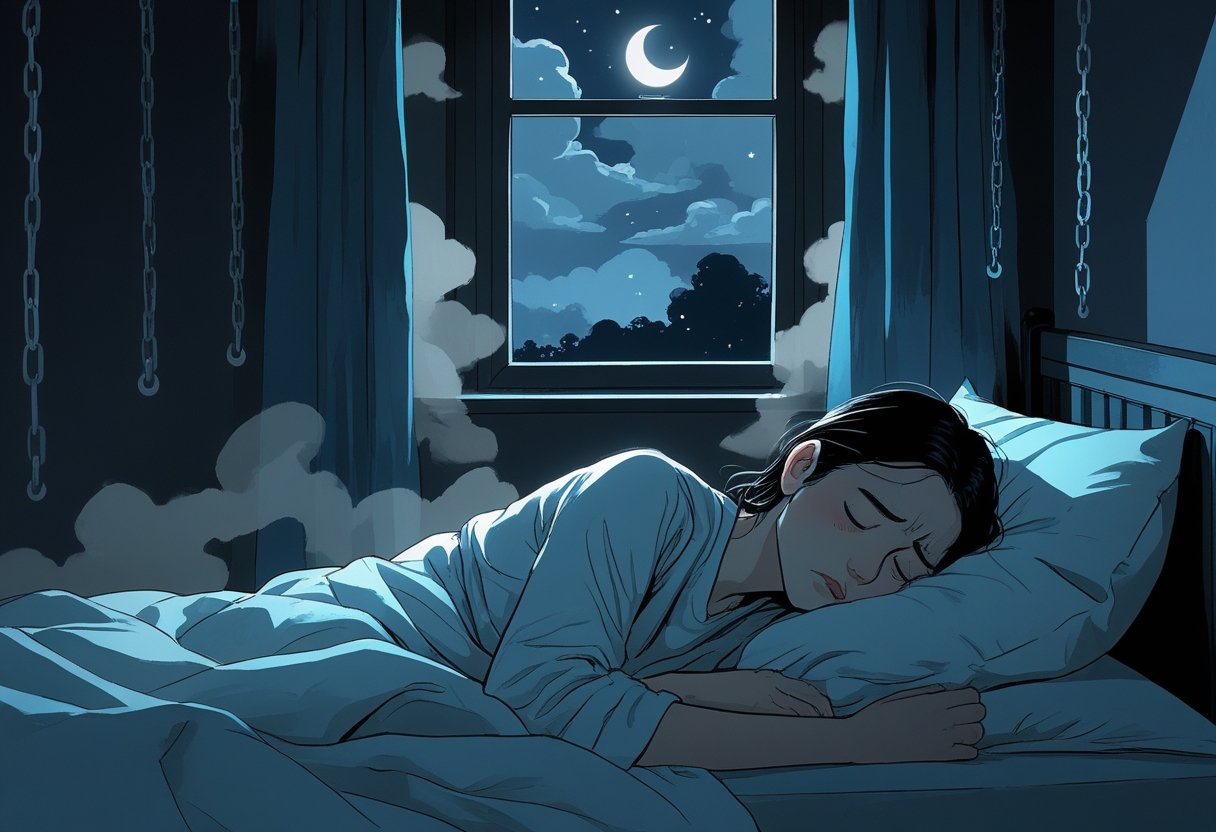
Understanding Depression And Sleep
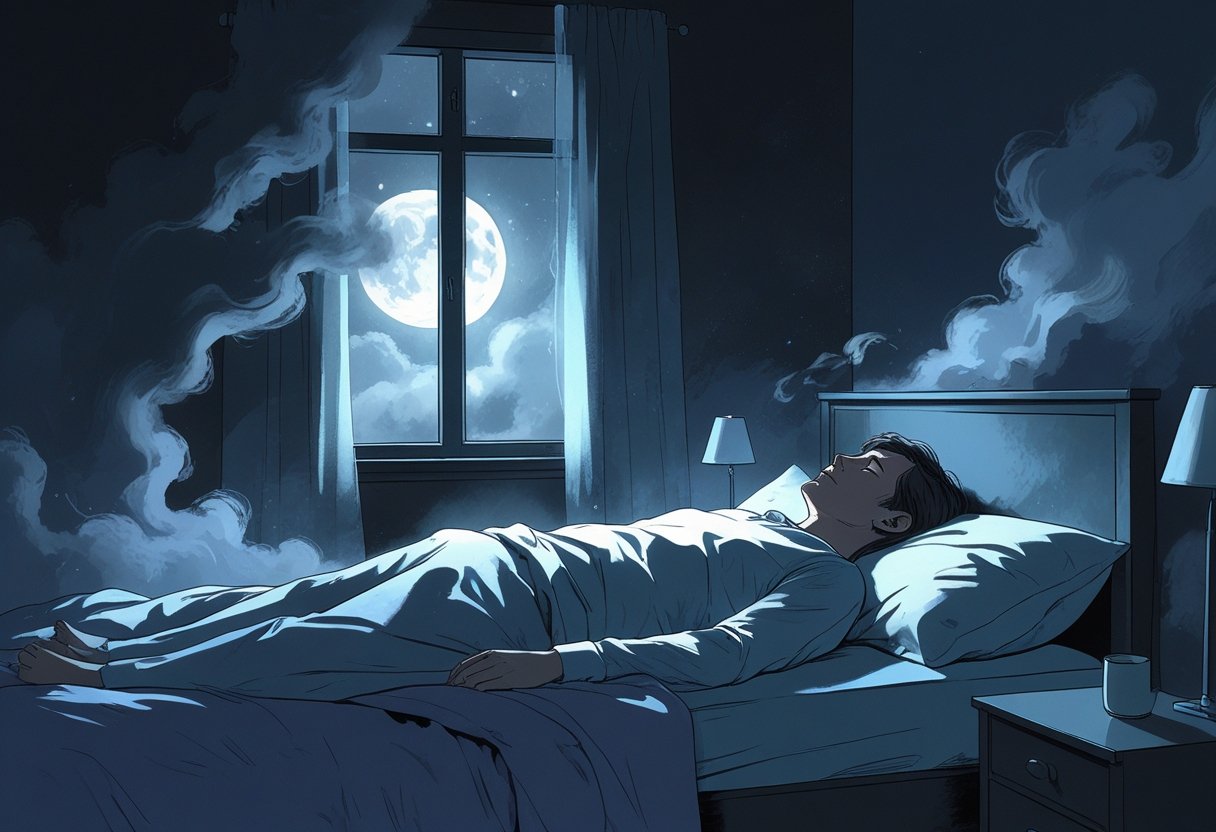
Depression and sleep affect each other in important ways. Poor sleep worsens depression symptoms. At the same time, depression disrupts normal sleep patterns. Understanding both conditions and their connection helps explain why many people face challenges with sleep and mood at the same time.
What Is Depression?
Depression is a mental health condition that changes mood, thoughts, and behavior. People with depression often feel sad, hopeless, or lose interest in activities they used to enjoy. It can also make it hard to concentrate and can decrease energy levels. The condition might lead to physical symptoms like fatigue or changes in appetite. It affects brain chemistry, especially the neurotransmitters that control mood and sleep. Approximately 12% of U.S. adults will experience depression at some point in their lives. Its severity varies, and it can last for weeks, months, or even longer.
What Is Sleep?
Sleep is a natural state of rest during which the body and brain repair and recover. It includes multiple stages like deep sleep (slow-wave sleep) and REM sleep. Each stage supports memory, mood balance, and physical health. Healthy sleep involves both sufficient duration and high quality. Restful sleep helps regulate emotions and sharpens cognitive function. Problems like falling asleep late, waking up frequently, or rising too early appear in many conditions, depression included.
The Link Between Depression and Sleep
Depression and sleep are closely tied to each other. When someone is depressed, their sleep often suffers. They may wake up many times during the night or find it hard to stay asleep. On the other hand, not getting enough good sleep can raise the chance of developing depression. Poor sleep affects the brain areas that handle mood and stress, which makes things even harder.
This cycle can be frustrating. Stress from depression makes it harder to rest, and a lack of rest makes depression worse. Some people with depression barely sleep, while others sleep too much. Neither feels good. Both can leave a person drained, low on energy, and struggling to get through the day.
Knowing how depression and sleep affect each other is important. It helps guide treatments that don’t just focus on mental health but also on improving sleep. Taking care of both at the same time can make recovery more manageable.
How Depression Impacts Sleep
Depression affects sleep in several ways, disrupting both the ability to fall asleep and the overall quality of rest. People with depression face specific sleep issues such as difficulty staying asleep or waking up too early.
Insomnia From Depression
Insomnia frequently occurs in those with depression. It may involve trouble falling asleep, waking up multiple times at night, or rising too early without being able to fall back asleep. This form of insomnia goes beyond the occasional sleepless night. It may persist for weeks or longer and tends to intensify depressive symptoms. Insomnia tied to depression signals a deeper disruption in mental health.
Many ask: is insomnia a symptom of depression? Yes, it usually is. Insomnia and depression frequently coexist, and each can amplify the other. Treating depression effectively often requires addressing insomnia directly.
Sleep Disturbances in Depression
Sleep disturbances related to depression extend beyond insomnia. Some experience shifts in sleep patterns such as fragmented rest, reduced deep sleep, or altered sleep cycles. They may spend more time in lighter sleep stages and less in restorative deep sleep, which supports brain and body recovery. As a result, they wake up tired despite getting a full night in bed.
Depression also disrupts hormones responsible for regulating sleep, which can lower how restorative sleep feels and further impact mood and energy.
Key points about sleep disturbances in depression:
- Trouble staying asleep or waking up early
- Less deep and slow-wave sleep
- Hormonal shifts that reduce restfulness
These issues usually worsen depressive symptoms, creating a cycle of poor sleep and low mood. Addressing these sleep problems is important in managing depression.
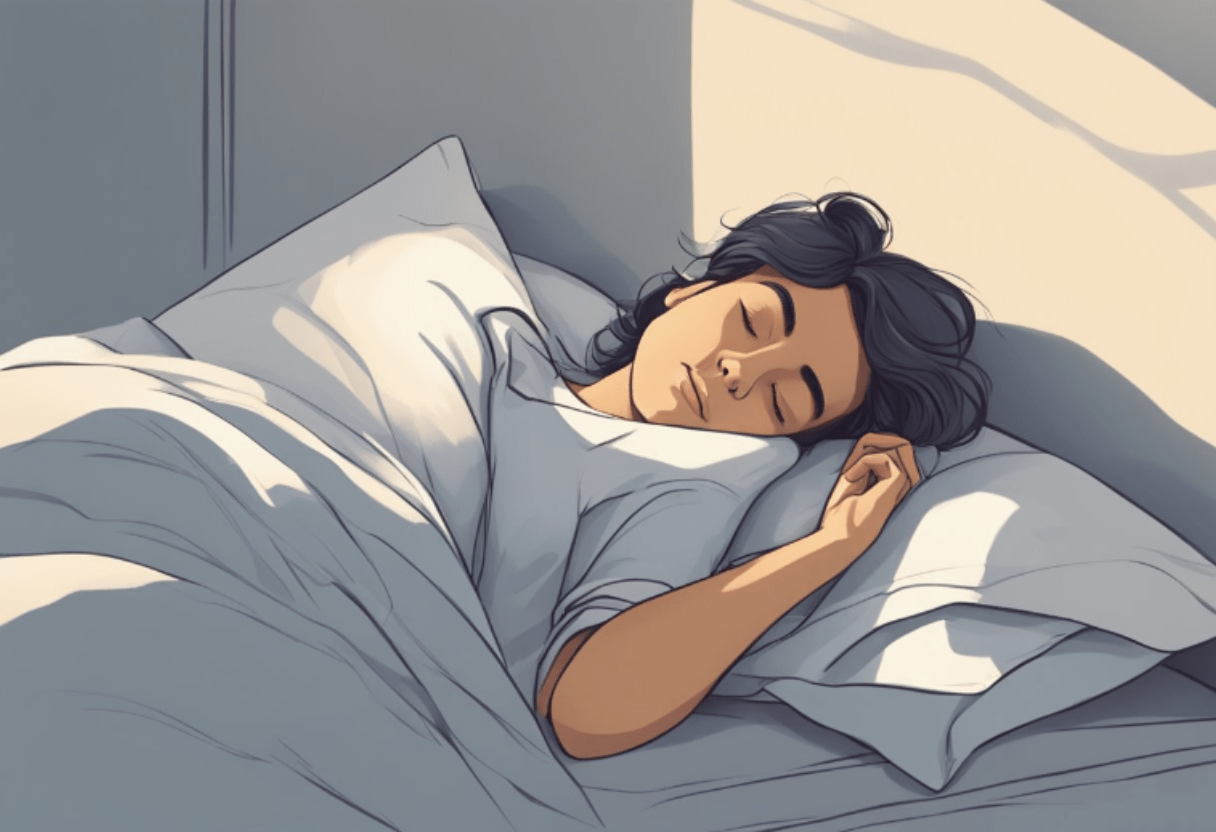
How Sleep Problems Affect Depression
Sleep problems can both worsen and signal depression. Trouble sleeping often alters brain chemistry and affects mood regulation. This creates a cycle in which poor sleep and depression reinforce each other.
Sleep Deprivation And Depression
Sleep deprivation reduces the brain’s ability to manage emotions and stress. Without enough rest, the risk of depression rises. It also lowers activity in brain regions tied to motivation and pleasure.
Many people who lack sleep report irritability, low energy, and trouble focusing. These symptoms closely mirror those of depression, making it difficult to determine which condition began first. Studies reveal that ongoing sleep loss can shift hormone levels and disrupt brain chemicals like serotonin, which influences mood.
Does Lack Of Sleep Cause Depression
Lack of sleep can lead to depression, though it rarely stands as the sole cause. For some individuals, sleep problems come before any depressive symptoms. For others, depression triggers poor sleep, such as insomnia or frequent nighttime awakenings.
Insomnia and related issues raise the risk of depression. Addressing sleep disruptions early could help lower that risk. Still, depression itself interferes with regular sleep patterns, forming a two-way relationship. Recognizing this link allows doctors to develop more effective treatment plans for both conditions.
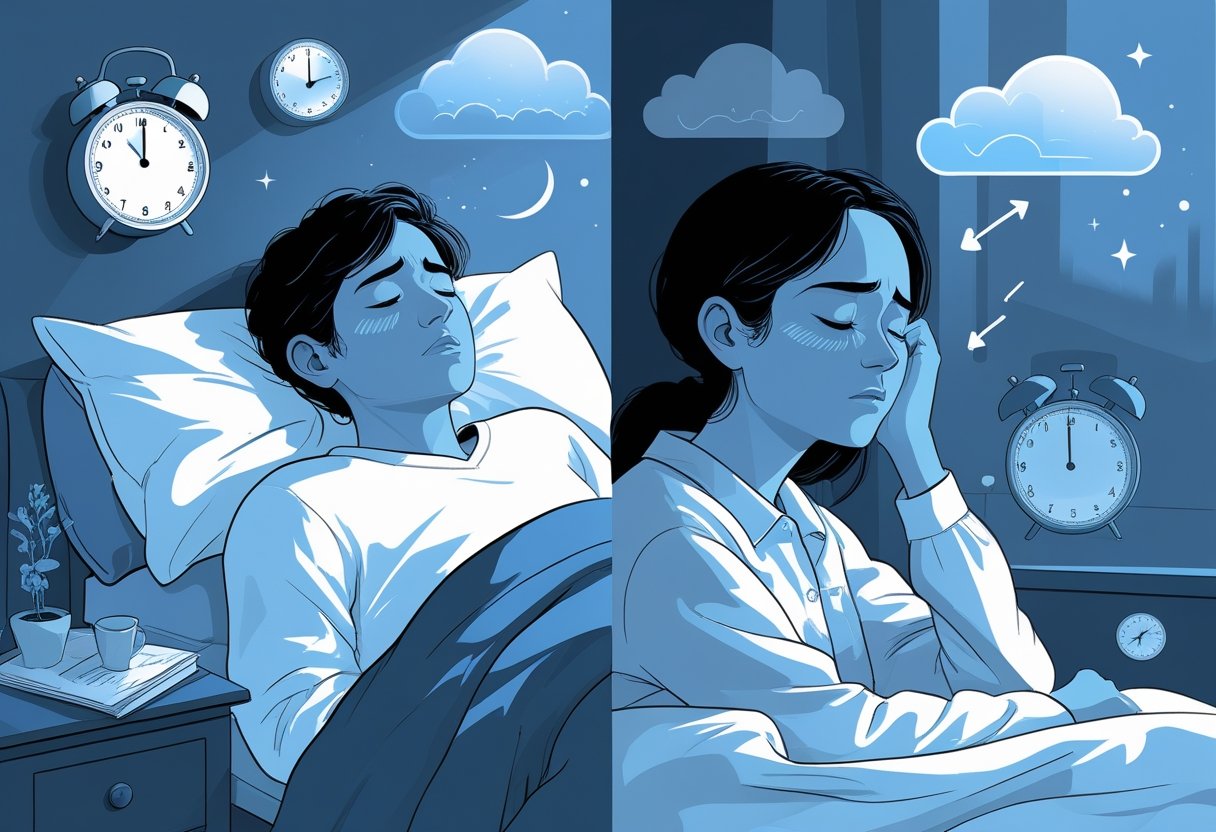
Types Of Sleep Disturbances In Depression
Sleep problems linked to depression involve difficulty falling asleep or sleeping excessively. These changes disrupt the brain and body’s ability to restore themselves during rest. Recognizing how these patterns shift helps manage depression more effectively.
Insomnia and Depression
Insomnia ranks among the most common sleep issues for people with depression. It refers to trouble falling asleep, staying asleep, or waking too early. Poor sleep quality can intensify mood symptoms and raise the risk of depression persisting or returning.
People experiencing both insomnia and depression may feel exhausted during the day yet still struggle to unwind at night. Their sleep cycles often miss the deep, restorative stages, which impacts memory, focus, and emotional stability. Research shows that insomnia frequently appears before mood changes and may signal the onset of a depressive episode. Because of this two-way relationship, addressing insomnia can sometimes improve depression.
Hypersomnia and Depression
Hypersomnia refers to sleeping excessively or feeling persistently sleepy during the day, even after a full night’s rest. Though less common than insomnia, it’s still important in depression. Some individuals may sleep 10 hours or more and still wake up feeling drained.
This kind of oversleeping lacks restorative value, deepening fatigue and sapping energy. Hypersomnia tends to appear more frequently in specific subtypes of depression, such as atypical depression. Like insomnia, it disrupts brain activity and mood, which makes daily responsibilities more difficult to manage. When depression leads to hypersomnia, tracking sleep habits closely becomes essential, since this symptom may interfere with both treatment and recovery.
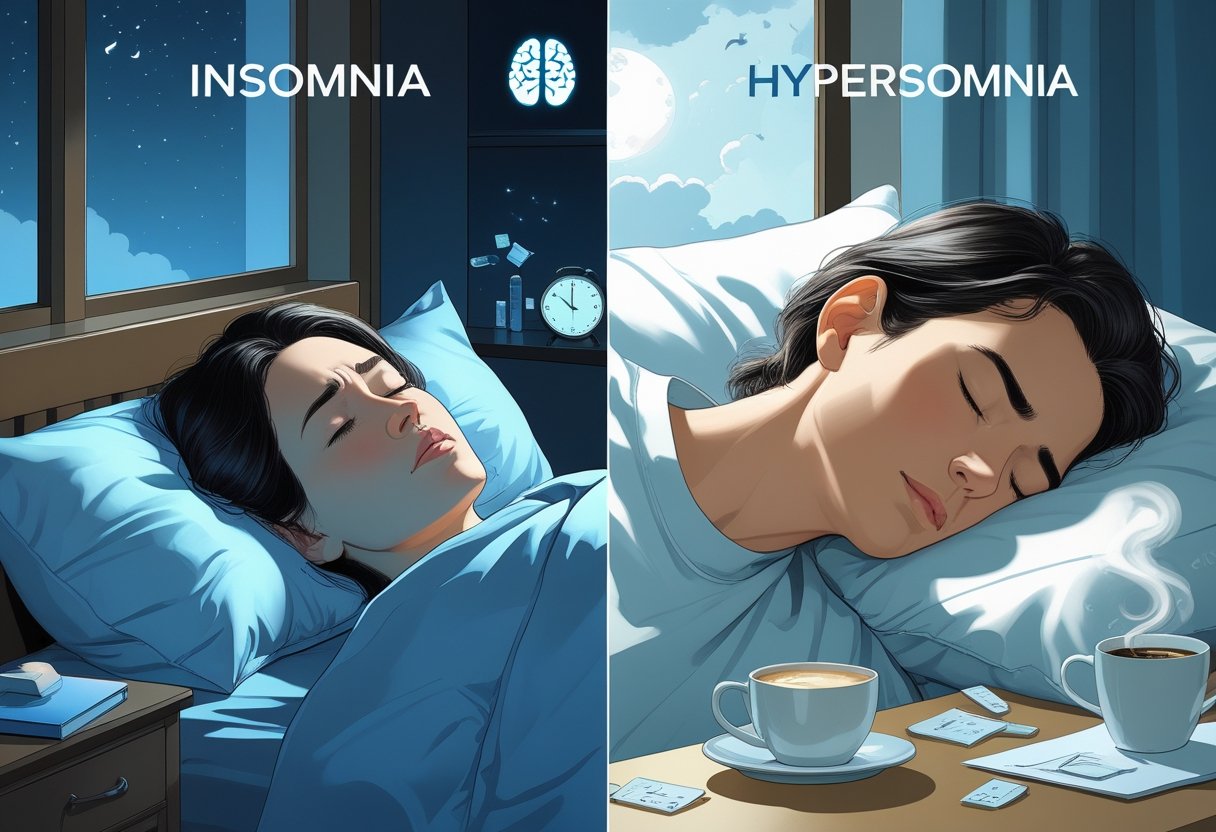
Common Symptoms And Overlapping Signs
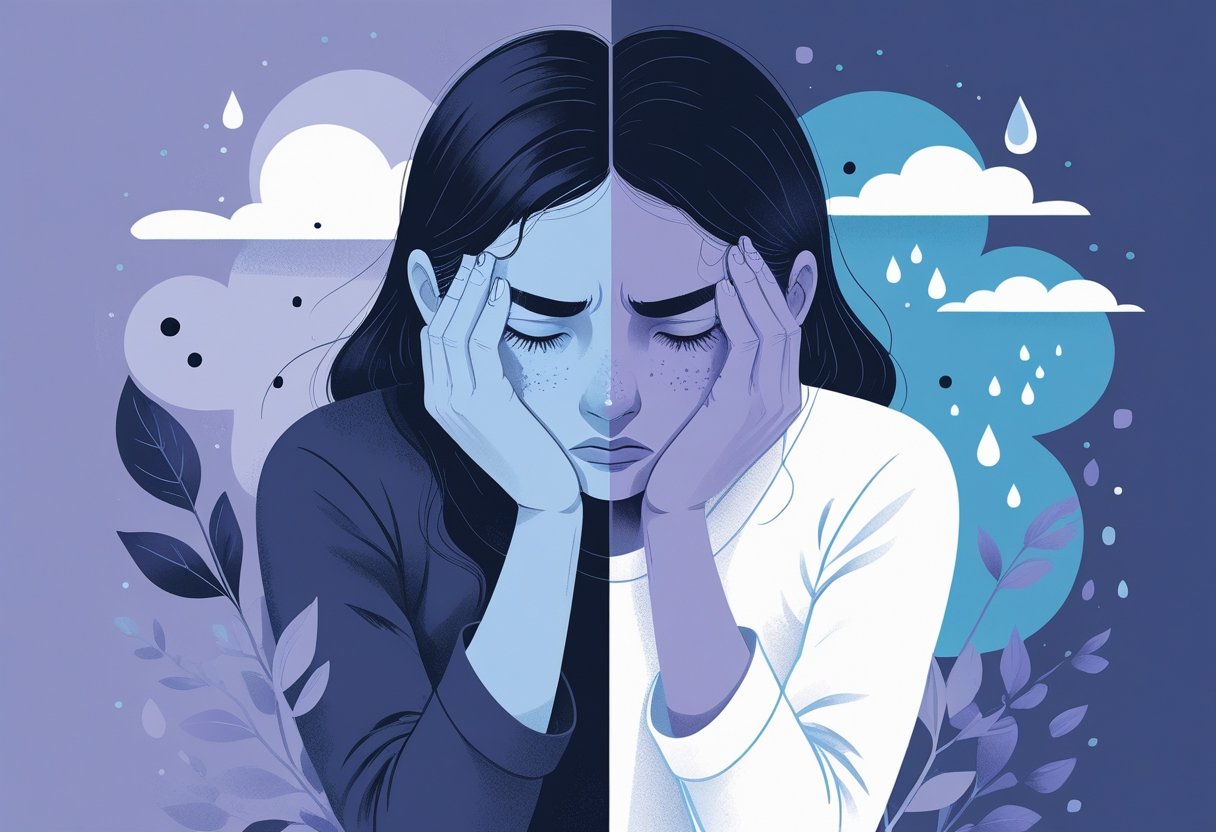
Depression affects how a person sleeps and feels throughout the day. Many symptoms of depression overlap with those tied to sleep problems, which makes it difficult to tell one from the other. These include tiredness, low energy, and shifts in sleep patterns.
Does Depression Make You Tired?
Depression causes fatigue and a constant sense of tiredness. This kind of exhaustion doesn’t always go away with sleep or rest. Many people with depression feel physically depleted, mentally sluggish, or unable to manage daily responsibilities. One explanation for this tiredness lies in the way depression alters brain chemistry. It impacts neurotransmitters such as serotonin and dopamine, which help regulate both mood and energy. These changes tend to lower motivation and increase physical and emotional fatigue.
Sleep cycles also get disrupted. Some people struggle with insomnia, while others end up sleeping too much. Both patterns result in poor-quality rest, which leaves individuals feeling more tired during the day.
Daytime Fatigue and Sleepiness
Fatigue during the day often shows up as ongoing sleepiness or a lack of drive. It can interfere with focus and alertness, which may affect job performance, academics, or personal relationships. Sleep disturbances, like not getting enough rest or sleeping excessively, can directly fuel this fatigue. Poor sleep tends to trigger symptoms such as irritability, low motivation, and difficulty concentrating. These issues often overlap with depression, which makes proper diagnosis and treatment more difficult.
Certain conditions, including sleep apnea, may also resemble or intensify symptoms of fatigue and depression. Sleep apnea disrupts breathing during sleep, which prevents deep rest and leads to mood swings and daytime drowsiness. Factoring in these overlaps proves essential when addressing both depression and sleep issues together.
Causes And Risk Factors
Depression and sleep problems occur together because several key factors overlap. These include changes in the brain, stress or trauma, and daily habits that influence sleep quality and mood.
Biological Mechanisms
Biological factors significantly influence both depression and sleep issues. Imbalances in brain chemicals like serotonin and dopamine affect mood and disrupt sleep regulation. These chemical shifts can lead to difficulty falling or staying asleep, often resulting in insomnia. In turn, insomnia raises the risk of depression or worsens existing symptoms.
Genetics is also important. A family history of depression increases the likelihood of experiencing it along with related sleep problems. Hormonal changes during certain life stages or medical conditions may also impact sleep and mood.
This biological interplay creates a cycle where poor sleep intensifies depression symptoms, and depression further interferes with sleep, which makes recovery more difficult.
Psychological Contributors
Stressful events and mental health struggles frequently lead to both depression and sleep disturbances. Major life changes, such as grief, trauma, or persistent anxiety, heighten the risk of both conditions. For instance, chronic stress may trigger insomnia, which then increases the chance of developing depression.
Negative thought patterns common in depression also disrupt sleep. Persistent worry or rumination at night keeps the mind active, making it harder to fall or stay asleep. This mental strain reduces resilience to daily challenges and deepens vulnerability to depression.
Treatments like cognitive behavioral therapy for insomnia (CBT-I) focus on changing thoughts and behaviors related to sleep and have shown effectiveness in easing both sleep issues and depressive symptoms.
Lifestyle Influences
Daily routines affect both sleep and mental health. Poor sleep hygiene, such as inconsistent sleep schedules or screen time before bed, usually leads to insomnia, which can gradually contribute to depression. Lack of exercise, an unhealthy diet, and substance use (especially alcohol and caffeine) negatively impact both sleep and mood. Alcohol, in particular, tends to fragment sleep and intensify depressive symptoms.
Following a consistent routine with healthy sleep habits helps reduce these risks. Simple strategies include going to bed at the same time each night, limiting light exposure before sleep, and using relaxation techniques to manage stress. These steps support better sleep and help guard against depression.
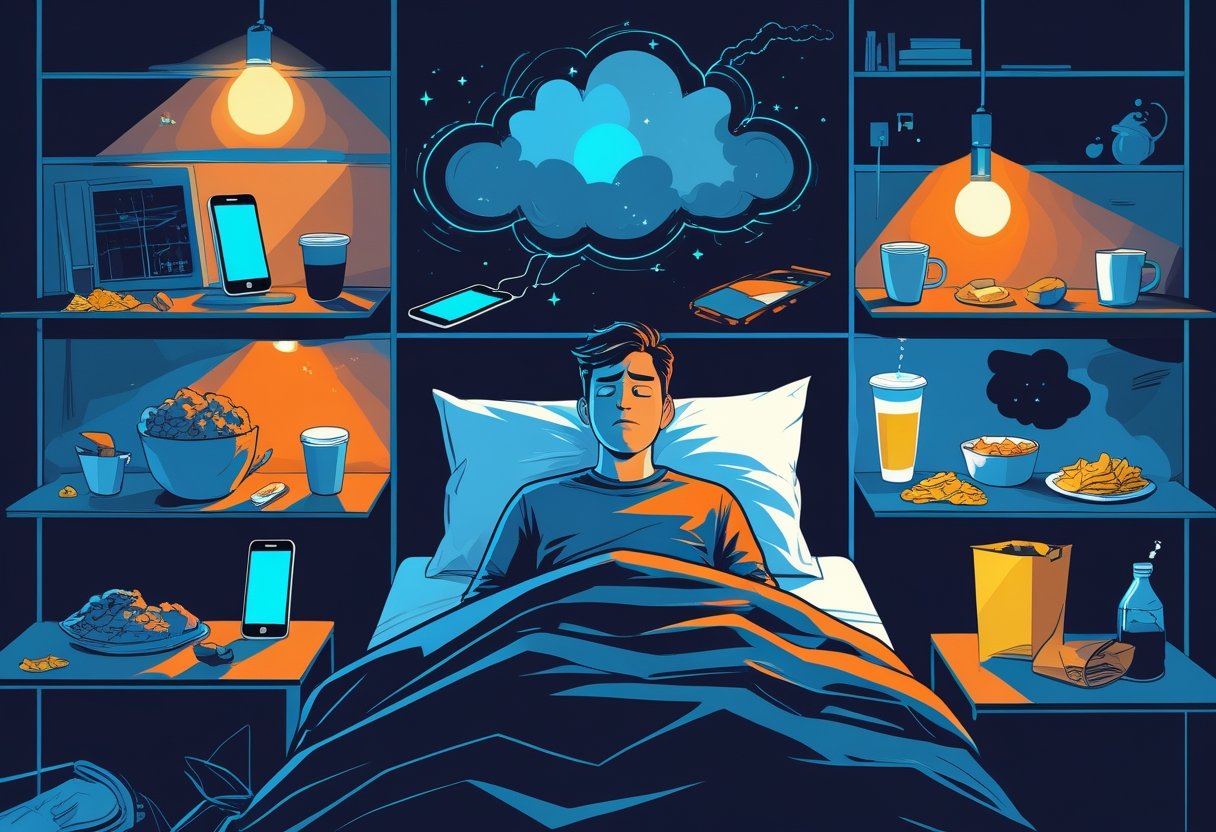
Impact On Mental Health And Daily Life
Sleep problems and depression usually interact in ways that disrupt mood, thinking, and daily routines. Poor sleep worsens mental health, while ongoing depression makes it harder to achieve restful sleep. This cycle affects many areas of life, including anxiety levels and performance at work or school.
Relationship With Anxiety
Sleep and anxiety share a two-way relationship. A lack of sleep raises anxiety levels, which makes it difficult to relax or concentrate. At the same time, anxiety interferes with falling or staying asleep. This cycle deepens the symptoms of both conditions.
Conditions such as generalized anxiety disorder and PTSD coincide with sleep disturbances. People with depression may feel more fear or worry at night, which disrupts rest and intensifies both issues. Research shows that around 75% of those with depression also report insomnia or other sleep difficulties.
Treating sleep problems often eases anxiety symptoms since better rest supports mood regulation and stress control. Addressing sleep issues is a crucial part of managing both anxiety and depression.
Effects On Work, School, And Relationships
Sleep problems tied to depression and anxiety create challenges in everyday responsibilities. At work or school, reduced focus, slower thinking, and irritability hinder productivity. This results in missed deadlines and underperformance. In relationships, mood swings and fatigue complicate communication. Low energy or emotional withdrawal can make social situations feel exhausting. These effects may cause isolation, increasing feelings of loneliness or worsening depression.
Employers and schools increasingly recognize how sleep impacts performance. Shifts like later start times or sleep-supportive policies help improve outcomes. Promoting healthier sleep habits is important in supporting mental well-being and daily life.
How the Right Mattress Can Help Ease Depression and Improve Sleep
Getting good sleep is harder when you’re dealing with depression. And when sleep is poor, depression often feels worse. That’s why the mattress you sleep on matters more than most people think. A supportive mattress helps reduce body pain and pressure points. With less tossing and turning, it’s easier to fall into deeper sleep that actually restores your energy. Keeping your spine in a natural position also cuts down on discomfort that might wake you up during the night.
Comfort goes beyond support, though. The way a mattress handles heat and temperature plays a big role too. If it traps heat, you’ll wake up sweaty and restless. But if it stays cool and steady, you’re more likely to sleep longer without being disturbed. Better comfort and better support mean better rest. And for someone living with depression, that extra rest can make the next day a little easier to face.
One mattress that balances support, pressure relief, and cooling features is the Leesa Legend Hybrid. It combines advanced materials designed to promote proper spinal alignment while maintaining comfort and breathability, qualities that contribute to more restful nights.
The Leesa Legend Hybrid uses a combination of pocketed coils and premium foam layers to deliver both durability and softness. Its cooling technology regulates temperature throughout the night, while targeted support zones ease pressure on shoulders and hips. These features make it an excellent choice for those who seek a mattress that adapts to various sleeping positions and promotes overall well-being.
Benefits of the right mattress for depression and sleep:
- Proper spinal support: Reduces pain and body stiffness
- Pressure point relief: Decreases tossing and waking
- Temperature control: Helps stay cool, improving uninterrupted sleep
- Comfort: Promotes relaxation and longer sleep
Choosing a mattress that fits individual needs makes it easier to achieve restful sleep. Better sleep then supports emotional stability and helps ease anxiety linked to depression.

Frequently Asked Questions
Sleep problems often occur alongside depression. These may include difficulty falling asleep, sleeping too much, or changes in sleep quality. Managing sleep influences how depression symptoms develop and respond to treatment.

